#susan and edmund
Explore tagged Tumblr posts
Text
Happy Birthday MyAnna Buring! 🎁🍾🥂🥳
#ripper street#ripperstreet#ripperstreetuntoldstories#ripper street untold stories#edmundreid#edmund reid#long susan#susan and edmund#susan hart#myannaburing#myanna buring#birthday#tissaia de vries#tissaia#the witcher#thewitcher#the witcher netflix
21 notes
·
View notes
Text
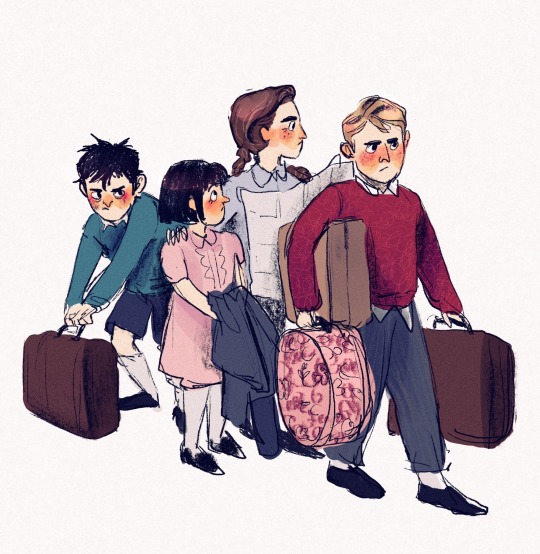
The Pevensie Children
#art#illustration#fan art#narnia#the chronicles of narnia#the lion the witch and the wardrobe#peter pevensie#edmund pevensie#susan pevensie#lucy pevensie#c s lewis
4K notes
·
View notes
Text
They're his children of course. Richard still recognizes them; it's only been two years.
And yet...
Peter is a man. Still six months shy of his draft papers, but he stands, walks, sounds like a man. He always has a pocket knife, he tips his hat to all the females, he sings in a baritone that will only get deeper and richer. The tea he makes is decent, but sometimes he drinks coffee now. He talks about horses and crops and reads Augustine. He can drive a car. He gives orders, and expects them to be followed.
They all look to him, to Peter. Helen calls him to open a jar, Susan questions how her hair looks, Lucy runs to him in tears. As for Edmund, he and Peter are curiously joined, they turn to each other with their laughter, their thoughts, their books and newspapers and letters. As often as his family swirls around him, Richard sees them swirl around Peter, a habit, he knows, born of necessity, but that doesn't prevent it from being strange. Even painful.
Peter moves to take the head of table, catches himself. They both start to say grace, stop, glance at each other. Peter takes the newspaper over breakfast, and is a page in before he remembers. And every time he apologises. Each time he smiles at his father, and it is warm, glad, even benevolent.
One of the first nights, shortly after Christmas, Peter finds him sitting in his old armchair, staring into the fire, after everyone else has gone up to bed. "Dad?" comes the question, and he looks up blinking at the tall man, lamplight crowning him in gold, blue eyes deep and dark with knowledge and certainty.
"I'm not who I was," Richard says, a confession, the kind a father shouldn't burden his son with he thinks immediately, but then Peter is down on one knee, reaching for the mangled hand, tender with the three fingers as he clasps strong calloused palms around them.
"Neither am I, Dad. None of us are." Peter's gaze is earnest, bright. "But you are still my father. And I will always be your son. I am forever grateful for that."
It is as if a great burden rolls off of his shoulders, and he finds no shame in leaning on Peter's hand to rise.
When the holidays end, and the four go back to school, Peter says I love you to each of them at the station.
If Peter is a man now, Susan is a lady.
She sits straight, she walks gracefully, she can cook anything as well or better than her mother. She reads the newspapers with Peter, she scolds Lucy for coming home with twigs in her hair and a tear in her stocking and wet shoes.
She talks less than her father remembers, and there is a woman's sadness in her gazing out the window or into the fire. She is also very admiring of the boys in uniforms, and Richard requests her arm on the way out of church with a father's righteous sense of protection.
But she is also gentler than he recalls, she does not shy away from his injured hand, she takes care of him without making him feel as if he needs care. She sits on a cushion by his feet as she braids her hair in the evenings, leans on his knee as she reads aloud, and Richard thinks, Not my little princess, but a queen now.
At the train station, she kisses him goodbye, and he hugs her close, and there are tears in her eyes as she says I love you.
Edmund is the closest to unrecognizable, the once-obvious four year span between he and Peter seemingly halved. He greets his father wordlessly, all shining eyes and bright smile, and his face is so close to Richard's own it makes his heart break a little.
Ed is no more little boy, he is tall, slim, oddly graceful, but his handclasp is strong. He holds himself the same way Peter does, with squared shoulders and lifted head, but he wears that nobility in a quieter fashion. He's quick to see, quick to hear, quick with a wisecrack that makes Peter laugh out loud. He plays the violin now. He returns the family Bible to the living room with an apology for having kept it since the summer holidays. He reads Agatha Christie as a personal challenge, whispers to Susan in French, and his chess games with Peter are fierce battles of strategy that Richard cannot keep pace with.
In discussions of the war and its movements, he is sober and considerate, he meets each of Peter's moods with a balancing counter, he has a way of phrasing questions that pull out stories Richard had never planned to tell.
A few nights before the children return to school, Richard sits up in bed, certain he has heard a faint cry, and he slips away from his exhausted wife to check on his children, remembering how Edmund had suffered from night terrors as a child, imagining little Lucy inflicted with some dark dream.
But all he finds is shadows in the boys' room, and quiet whispers—Peter's apologies, Edmund's reassurance, and allusions to things Richard has no context for. He lingers by the door, an outsider in his home, until silence falls, and he returns with morning light to find them curled together in Peter's bed, Pete with an arm over Ed, and the father's love is bittersweet.
They have fought their own battle over here, on the home ground, Richard reminds himself. In their own way they have each faced terror and learned to conquer or be conquered, but perhaps he can meet them somewhere in between. Only time will tell.
On the train platform, Ed hugs his father tightly, gives him a smile, tells him to keep out of trouble.
Lucy is the least changed, though she too is taller and stronger, and her eyes are deeper. She still sings, still dances, still tries to make friends with all the animals, still smiles and speaks kind and stares dreaming at the Christmas tree.
She still gives fierce hugs, still climbs into her father's lap, though her head comes up higher on his chest, on his shoulder.
But then he finds gaps in his library, and Lucy returns the medical books with a winsome apology, she asks questions about his practices in the field, she winces but does not shy away from the blood and broken things he speaks of.
Then she recites long poems, words spinning off her tongue until they become half song; she dances swift and graceful, she and Peter laughing and stepping and clapping and spinning in intricate patterns to the swing song on the radio; and it is she who, breathless, quotes Byron: "On with the dance! Let joy be unconfined!"
Her comfort is both generous and thoughtful, and she strokes her father's hair with a motherly hand that makes his eyes sting, and he kisses her fingers, looks up at her to whisper, "Don't- don't grow up quite so fast, my darling."
When she hugs him on the platform, Susan waiting for her, the boys already gone, she doesn't want to let go, and there are tears on her cheek, that he wipes away gently. "Be careful, Daddy," she whispers. "Get strong. Take care of Mummy."
"Yes, little mother," he smiles back.
And then they are all gone, and he takes a cab home, weary of his still-recovering body.
He will have to learn his children all over again, he thinks. But he is proud of them still. That has not changed.
#mr pevensie#richard pevensie#peter pevensie#susan pevensie#edmund pevensie#lucy pevensie#pevensie siblings#fatherhood#my writing#narnia fanfiction#narnia
3K notes
·
View notes
Text
But what was most baffling to all that met the Pevensies after they came back was that they were kind.
Really. Not pretending, not because they were insecure. True, empathic. Far too understanding for children their age. They all have music in them.
Peter’s hands feel too small for him, but he shakes hands all the same. Gentle pressure. There is nobility behind those eyes. Eyes that always border on the supernatural sort of blue, especially in the dark.
He plays the guitar, gently coaxing otherworldly sounds out of an instrument that did not know it could be played like that. He helps his siblings with their homework, is taller much faster than his peers. Seems to take up more space, even though no one understands how a teenage boy manages that.
He doesn’t like doing nothing, ever. He instructs his classmates in grammar, gives away figures he cuts from wood with a knife that seems too sharp for a boy that small. He never hurts himself, though.
As the years pass, Peter grows strong. But he is gentle. He does not seem to be brash, even when many of his friends are. Peter keeps his emotions in check. Noble. Not undangerous, but not belligerent. Peter only ends fights, and only with people that deserve it.
He offers advice, a pat on the back. Teachers wanna dislike him, some do not like the look behind those eyes. Most find they cannot. Peter is popular with both adults and children, speaks sense and laughs often.
Peter is kind. Pious, devout. His faith is unmovable like rock. Did the kids meet God on the estate of their uncle?
Edmund plays the violin. A sad Edmund is a rare sight, but when he plays sad he can keep his whole floor awake. Somehow, Peter always finds h him quickly, effortlessly attuned to his brother’s moods. They play chess, then. Their chess master must have been a champion, Ed beats people with ease. He’s usually not smug about it.
Ed speaks politics and war in earnest, accepts critique graciously, is elegant in a way Peter never manages. Peter speaks frankly, but Edmund can wrap words up real nice. He doesn’t mince words, but his classmates grow into liking the sound of his voice. They appreciate that Edmund does not lie, even when speaking tactfully. Edmund can dial the temperature in a room, change it to suit himself.
He, too, laughs often, but Edmund is known to smirk. He likes being right and he often is. He’ll entertain anyone with a good story, always seems to have the right information to help you out. Remedies to illness, connections, job openings, how to sneak out of PE.
He’s a spider in a web. A bit reserved for a 11 year old, and oddly well-connected. A real ghost when he wants to be, but he never scares people with it.
Aslan would not approve of that. He believes in God as well, but much more intellectually. He’s got the intelligence to back it up and wit to match. A scholarly belief, but not lacking conviction.
Teachers like his enthousiasm, remember a moody nagging child when he left and see a secure young man come back.
Edmund will stand up for what is right. He gets into some trouble like that, but his verbal agility saves him always. Edmund has strong principles and will not bend them for anyone. No matter the trouble he gets in.
The bond with his brother is unbreakable. They even walk the same, chest out, left hand on their belt. They seem most at ease when fencing.
Susan was always warm and tenderhearted, but when she comes back there is a difference.
She seems to have gained authority. It’s real strange watching a 13-year old use her beauty like a grown woman, but Susan has learned to wield it, to stun people so she can creep under their skin. People LISTEN to her now.
Her wit is like a knife, but she avoids cutting deep. Susan is reasonable, and strong, and principled. The little drama others get involved in does not bother her, and she seems immune to petty insults. She has killed before, with her hands.
She will do it with kindness now. She is not very approachable ( that would be Lucy ), but she is kind. She used to mother over her brothers and sisters, but now that they have raised each other in a court full of magic she has gotten more relaxed. They listen to her on important issues, trust in her judgement. Her brothers does not deem himself more important, she is both well-spoken and well-respected by her siblings. Equal. It baffles the old men that teach her. Irritates them, too.
There is an air of mystery around her. Half a look is enough to get what she wants, Susan’s friends laud her security in herself, her Mona Lisa smile. She seems to temper moods easily, makes people feel at ease.
She most of everyone exudes royalty. It’s the grace. Susan plays the harp, her long fingers dancing across the strings like she’s had a lifetime of practice. She’s elegant, never caught off guard. Jamais faux pas.
She does not get angry. She knows who she will be. She is anxious to become an adult, yes, but she only wishes to look how she feels. Not to look differently. Yet the wish to be taken seriously, to have someone see you as an adult, it makes her surprisingly similar to her peers.
Her friends have not been old yet, is all. But Susan is calm and collected. People see her as someone you can tell a secret to. She never hurts someone, is usually a neutral party, speaks sense to adult and kids alike. She is not ignorant, however, will use every trick in the book to keep the peace. She knows when to go nuclear. Vis pacem para bellum.
Lucy is a sun in human form. She has a joie de vivre that is unmatched, is gay and golden-haired and never in a bad mood.
Lucy is kind by default, does not turn it off, does not turn it down. She’s witty and funny and quick on her feet. She has been grown before, yes, but enjoys being young for a few years more. She dances, sings old tunes. Her voice is her favorite instrument, you can usually hear Lucy coming.
Whistling a tune in the halls is known to improve the moods of everyone who hears it immensely. Young girls need to figure out who they are, but Lucy knows, knows what she’ll be and who she likes and what kind of people she wants to be around. She is not pretending, never moody. She can get sad, of course, but her older brothers and sisters are always nearby when that happens.
Lucy is genuine and fierce and convinced, immovable at times. Admired for her drive, but respected for her empathy. She speaks to everyone, often distributes flowers. There’s no naivite in her at all, she simply wishes to be like this so that the world may imitate her. She likes to see people prosper, is the first with praise.
She will go far, is the consensus. There’s steel beneath the soft exterior, Lucy has fire below the flowers. She’s well-liked and well-loved. She has love in spades, it seems, animals and stragglers and misfits and outcasts. She’s popular, her room is a good place to get a cup of tea and someone who will listen to you for some time. After a while she no longer bothers with the door.
That a heart that size fits in a girl that small is a mystery to many. Lucy does not think it is a mystery at all. It is the heart of a lion.
Her faith is as vocal as the rest of her, she sees it confirmed in all that is beautiful, all that is kind. She never tries to convert anyone but there are several people who have told her that version of God is someone they would like to know.
The Pevensies often see each other at parties, where they like to stand together. Edmund knows about everyone, everyone knows Peter, everyone likes Susan, but it is Lucy who knows everyone.
They are kind, but not weak. Peter gets his knuckles bloody sometimes, Edmund does not abide by the rules of unjust teachers. Susan and Lucy solve their problems differently but no less effective. Kindness is their usual way of operating, but they are still kings and queens. They will not allow cruelty, will not let bullies go unpunished.
They are sure of what they are and sure of what comes after death and this makes them kind. Kind , not harmless. Kind, not spineless. Kind, not ignorant. Kind, not naive.
Kind despite. Maybe kind because. The kings and queens of Narnia are proud of what they are, honour the teachings of their lion friend. Kind.
When the crash happens and three siblings die, everyone they know mourns deeply. Without them, the world is less kind.
#peter pevensie#edmund pevensie#lucy pevensie#susan pevensie#narnia#narnia meta#the lion the witch and the wardrobe#the chronicles of narnia#narnia fic
3K notes
·
View notes
Text
writing fanfiction is just fingers clenching over a keyboard as you ferally mutter i just want this little guy to be held, damn it and proceeding to hurt said little guy (gn) for about 10k words before you actually give them their hug
#this is what you do to a blorbo#izzy hands#eleventh doctor#steve harrington#peeta mellark#yusuf al kaysani#nicolo di genova#thirteenth doctor#jim jimenez#tony stark#jack harkness#ianto jones#edmund pevensie#susan pevensie#casey rhodes#ziggy grover#abed nadir#alec lightwood#magnus bane#kurt hummel#regina mills#connor walsh#hector rivera#five hargreeves#allison hargreeves#klaus hargreeves#listen i cannot be held accountable for what i do to the characters#merlin#arthur pendragon
8K notes
·
View notes
Text
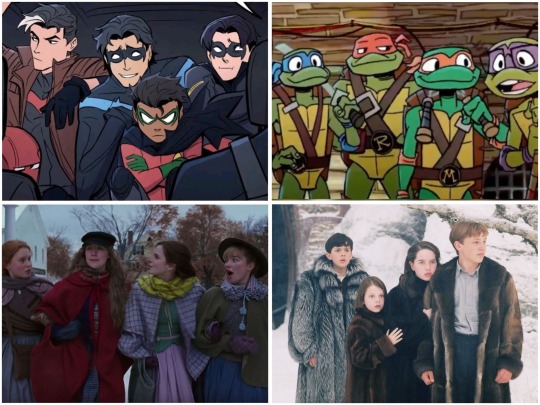
When the plot has four dumbass siblings who mess with each other
#batfam#dick grayson#jason todd#tim drake#damian wayne#tmnt#tmnt leonardo#tmnt michelangelo#tmnt raphael#tmnt donatello#little women#march sisters#jo march#amy march#beth march#meg march#narnia#the lion the witch and the wardrobe#peter pevensie#susan pevensie#edmund pevensie#lucy pevensie#text post#tumblr memes#lol#batman#siblings
2K notes
·
View notes
Text
Ok we all talk about the Pevensies' trauma at returning to Earth at the end of The Lion, the Witch, and the Wardrobe and their trouble readjusting to life there again but think of all the funny/good parts too
They return from the country, and their mom is surprised when all her children hug her at the station. Even Peter, who thinks he's all grown up. Even Edmund, who went away surly and withdrawn. She doesn't know her children haven't seen her in over a decade.
They miss their dear Cair Paravel, but they absolutely do not miss its chamber pots. Indoor plumbing is amazing.
It takes a while to remember how modern technology works, though. How many heart attacks did the siblings give their parents or the professor because they walked into a dark room only to turn on the light and find the children sitting there in the dark. (They were by the window! There was still plenty of light from the sunset! They would have gotten a candle in a minute!) The kids sheepishly remember oh yeah electricity is a thing.
(Edmund has a new electric torch in Prince Caspian. He was so excited to get that torch. Almost more excited than you'd think a kid his age would be, and his parents expect Peter at least to tease him, but the siblings all agree light in your hand at the touch of a switch is terrific.)
Suddenly getting really high grades in some subjects and terrible in others. Their grammar, reading comprehension, spelling, vocab, even penmanship? Amazing. History and geography? They don't remember anything. One time in class Susan forgets Earth is round and wants to die.
Also they can never remember what the date is supposed to be because Narnia uses different months and years. They can estimate time really well by looking at the sun though, and Edmund at least can always tell which way is north etc without thinking about it (again, using the sun)
Okay but how many times did they go to pick something up or reach something and realize they are so much shorter and less muscled than they expect? It's a common sight to see Peter climbing on counters to reach a top cabinet, grumbling about how he's High King this is demeaning. (No he never takes the extra five seconds to grab a stool. He will climb that shelf.)
Peter and Susan being delighted because they are no longer almost thirty. (In a few years Edmund and Lucy will tease them about being old and their parents will not understand.)
Lucy doesn't have to deal with periods anymore for a few years yet. Susan might not either. Heck yeah
Lucy loves to climb into her siblings' laps and be cuddled. In Narnia she eventually she grew too big, but now she is small and snuggleable again. Peter is her favorite, and if she's upset, he'll tickle her and tell bad jokes until she's smiling again, but really she loves cuddling with all her family. She grew up without her parents; how many times did she just want to crawl into her mom's lap and her mom was a world away? Imagine the first time she realizes she can now. Or, imagine one day, a cold and grey sort of day, when the rain is pattering against the windows, and it sounds like the rain on the windows of the Professor's house, that first day they went exploring. It sounds like the day they played hide and seek. It sounds so like the rain on the windows of Cair Paravel, that if Lucy closes her eyes she can imagine she's back there, having tea and chatting with Mr. Tumnus before the fireplace of her room, and soon the rain will stop, and they will go out on the balcony and wave to the naiads and the dryads and the mermaids, who have come out to enjoy the rain and visit one other on the banks of the Great River winding past Cair Paravel down to the sea.
But if Lucy looks out the window, all she'll see is the rain over London, so it's not only a cold and grey sort of day, it's a lonely sort of day too.
Susan and Edmund are playing chess in the living room (and they must have studied with Professor Kirke, thinks their mother, because they certainly weren't that good when they left). Lucy goes over to Edmund, and oh dear, thinks their mother, now he's going to call her a baby and be horrible to her, but instead he picks her up and puts her on his lap without even taking his eyes off the chessboard; it's simply a matter of course.
"Doesn't the rain sound familiar?" says Lucy in a solemn, wistful way.
Their mother doesn't know what that means, but her siblings must, because Susan says, "Yes, Lu, it does,” and Edmund gives her a little hug with his free arm as she tucks herself under his chin to watch the chess match.
(Five minutes later there is a crash from the next room as Peter falls off a counter. Their mother does not understand the words he must have picked up from the Professor, but he's grounded for them anyway. His siblings have no respect for their High King, because they refuse to stop laughing.)
#the chronicles of narnia#narnia headcanons#peter pevensie#susan pevensie#edmund pevensie#lucy pevensie#helen pevensie#the pevensies#okay this did end up a little bittersweet at the end but I tried#let's all just focus on the high king falling off counters alright#and yes the siblings all picked up narnian swear words and i refuse to believe otherwise#i'm also suddenly wondering how much language drift there is in narnia#when the pevensies return in prince caspian are all the swear words/exclamations they learned outdated?#are they using the narnian equivalent of oh horsefeathers?#nova actually posts stuff#long post //#the higher the queuer#post lww pevensies#soft post lww headcanons
21K notes
·
View notes
Text
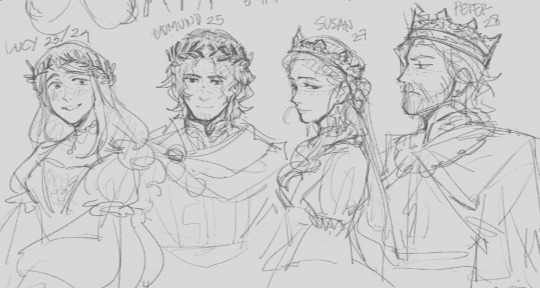
Got bored and doodled older Pevensies
#doodley#accidentally stumbled upon narnia fics in ao3 and now i'm here having narnia brainrot again#anyways in this house we let the girls serve and be fashionable bc it's what they deserve#especially susan. susan deserve it all#artists on tumblr#the chronicles of narnia#the lion the witch and the wardrobe#lucy pevensie#edmund pevensie#susan pevensie#peter pevensie#was using the movies as refs and lmao kinda forgot lucy is blonde in the books#might draw them again bc i really like this design#narnia
4K notes
·
View notes
Text
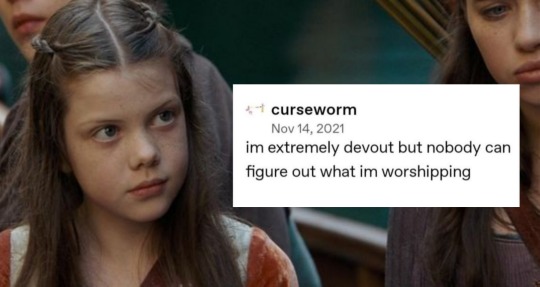
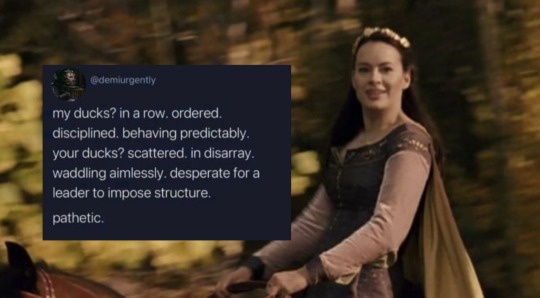
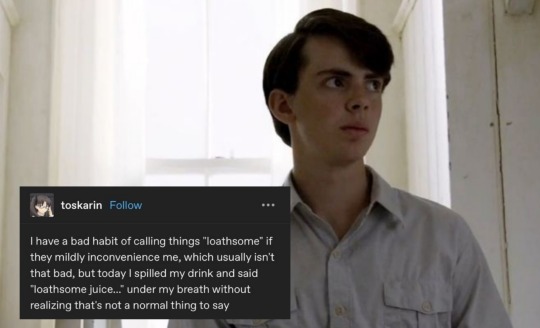
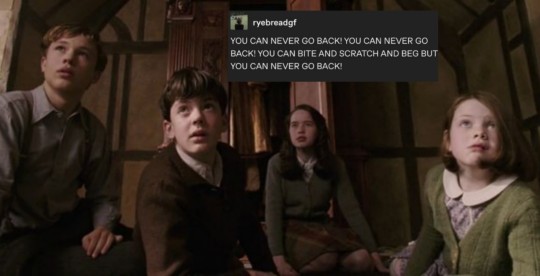
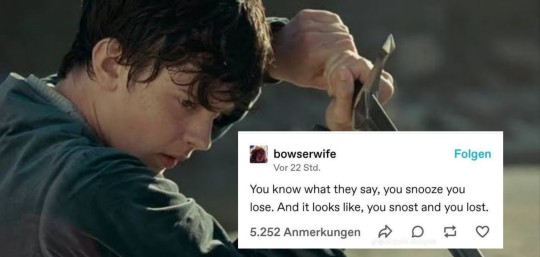
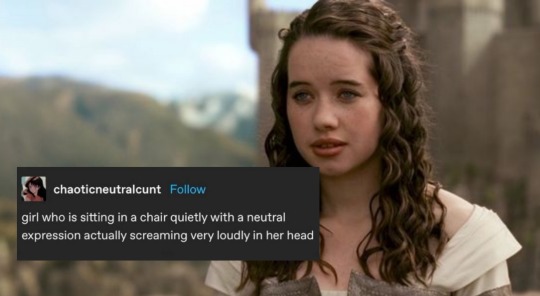
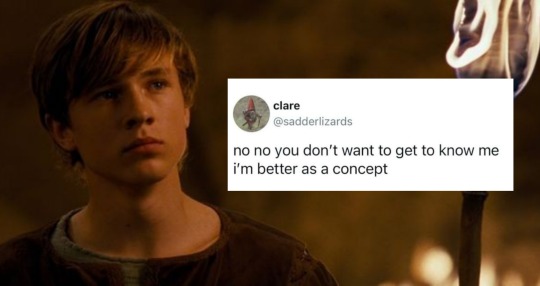
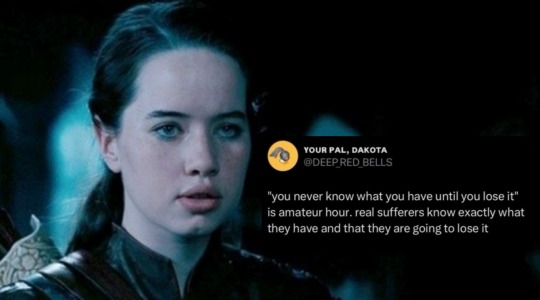
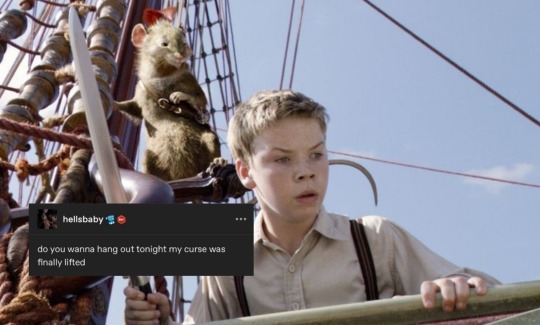
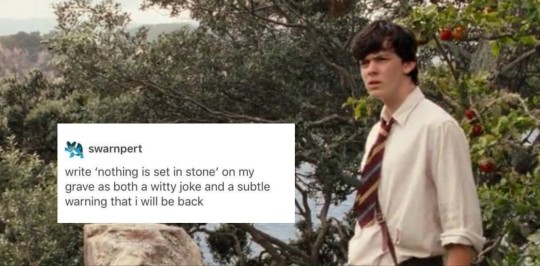
Narnia text posts 3/one gazillion
#cleb talky#cleb things#narnia textposts#the lion the witch and the wardrobe#prince caspian#the voyage of the dawn treader#chronicles of narnia#narnia#edmund pevensie#lucy pevensie#peter pevensie#susan pevensie#eustace scrubb#textpost meme#text post meme
648 notes
·
View notes
Text
Caspian and co were like "gosh this duel idea is great and all, but how the heck are we gonna get Miraz, whos army is like three times bigger, to agree to it??"
And the Pevensies were all like: "No yeah we'll just send this little shit right here, he can provoke anyone into doing anything, trust us"
While Edmund so-you-bravely-refuse-to-fight-a-swordsman-half-your-age Pevensie just raised an eyebrow, grinning.
#edmund pevensie#caspian x#peter pevensie#susan pevensie#not really including lucy cause she wouldnt swear but shed tots agree#narnia#chronicles of narnia#prince caspian
4K notes
·
View notes
Text
Can we talk about how chaotic Narnian battles would feel?? Especially in Prince Caspian. Like, imagine you’re a little Telmarine soldier waiting for the catapults to go and you’ve got all your regiments in nice orderly rows and these two 16 year olds suddenly yell “charge” and the ground opens up beneath you, a mouse with a sword the size of a large pencil takes out your bestie, a griffin drops a dwarf 5 ft away from you and he comes up swinging. As you try to rationalize this, you’re stabbed by a twelve year old with a British accent. Finally, a really freaking big lion shows up, roars, and your entire army collectively pees their pants. At one point in the movie (yes I know the movies aren’t quite the same as the book but they’re still good) Peter says like “we have the element of surprise” like dude, you have drafted the trees I’m pretty sure everyone’s gonna be surprised no matter what.
#narnia headcanons#chronicles of narnia#peter pevensie#susan pevensie#edmund pevensie#lucy pevensie#narnia#narnia movies#prince caspian#aslan
5K notes
·
View notes
Text


I confess … it’s a bit mean 😢
#ripper street#ripperstreet#ripperstreetuntoldstories#ripper street untold stories#edmundreid#edmund reid#susan and edmund#susan hart#susanhart#hartmund
6 notes
·
View notes
Text
Yearly Reminder that C.S Lewis encouraged his fans to write fanfiction about Susan Pevensie becoming a friend to Narnia and reuniting with her family once again.
Literally inviting his fans to write Susan’s adult, angsty character development with a happy ending.
Do your duty fans. Write that fanfiction.
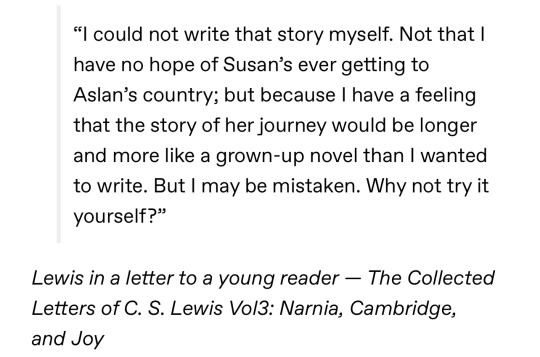
#susan pevensie#edmund pevensie#peter pevensie#lucy pevensie#aslan#prince caspian#white witch#narnia#ben barnes#c.s. lewis#the lion the witch and the wardrobe#voyage of the dawn treader
19K notes
·
View notes
Text
Peter, fifteen and fresh out of a bloody and brutal war, sneaking out of Cair Paravel in the middle of the night and going to the river, sticking his head into ice-cold water to shock himself out of a nightmare riddled sleep. Narnia won, but at what cost?
Peter, lying in Susan's bed with his fingers curled tightly into the fabric of her skirts, dried tear tracks on his face and Susan singing quietly in an effort to comfort him. Her fingers pick apart the strands of his hair and he falls asleep only to wake up an hour later with screams on his lips.
Peter, wrapping his arms around an Edmund who has returned from war and murmuring frantic thanks to the Gods for keeping him alive. He presses kisses on Edmund's forehead, cheeks, nose and eyelids, and considers the idea of never letting any of his siblings out of his sight ever again.
Peter, sitting on the High King's throne at the age of thirteen and wondering if he is worthy of this, if he deserves this, if he is capable of this. He is thirteen and barely knows anything about anything and he is High King who should know everything about everything is he worthy is he deserving is he capable he does not know—
Peter, in Lucy's room sitting on the floor with his back pressed to her bed, allowing her to braid flowers into his hair as he stares at the wall. The Victory Parade is in a few hours, but they lost many soldiers and people and Peter has lost sleep and sanity and good friends. Narnia has won but Peter has lost.
Peter, carrying a candle to the Castle Library at two in the morning and pulling out a book about children's fables. He cannot sleep, might as well distract himself. The candle dies down and the sun comes up, and Peter drags himself back to his quarters to get ready.
Peter, who locks himself in his chambers and does not come out for days and days, who refuses food and drink and buries himself under his blankets and stares out the window with blank eyes and slack eyebrows, who does not speak and does not cry and pushes his face into his pillow and screams for the nightmares to go away please I'll do better I just want to sleep please stop please—
Peter, who wants peace and contentment, but cannot help but go to war. Peter, who is quiet and introspective but needs to be loud and abrasive because he is High King. Peter, who wishes he could put down the sword that he wields as easily as he breathes.
Peter, who desires peace, but becomes a God of War
#narnia#the chronicles of narnia#amrut writes about narnia#peter pevensie#pevensie siblings#pevensies#susan pevensie#edmund pevensie#lucy pevensie#narnia headcanons#peter pevensie headcanons#eerie pevensies#peter the magnificent#king peter the magnificent#high king peter#high king peter the magnificent#that boy is traumatised from all the wars he fought#and you can fight me on it#just know that i will win
1K notes
·
View notes
Text
It's Edmund who figures it out first, you know, who Aslan is. Like, a week after they're back in England, they go with the Professor to the little village church, and they stand and sing Amazing Grace, and the rector preaches something about Jesus dying for sinners, and Edmund is nailed to the pew with utter certainty: That's Aslan.
He doesn't say it directly to anybody, he has to chew it over, has to test it and try it, and see if it holds true. He and the Professor have many lively discussions about what Narnia actually is, what it's for, what other worlds would mean for science or philosophy or theology. But every time he goes back to the Bible and reads it, he finds echoes of Narnia, echoes of the Lion's voice, and the truth settles into him, becomes something solid and certain deep down inside.
Peter... sees the possibility almost as quickly. He's not so sure of it though, is a bit shy of something so incredible, doesn't want to get it wrong. He wants it to be true. He thinks about it a lot. But he doesn’t say any of it aloud, until he says to Aslan, at the end of his last trip to Narnia. It gets decided then, in there somewhere. He doesn't understand how or why, but he will believe anyway.
Lucy, now, Lucy always knew in a way that was beyond words, unconsciously, deep inside somewhere she never stopped to examine. She stands in Eustace's room, with Aslan’s words ringing in her ears, and it's like a light bulb has come on, or a bucket of cold water has been dumped over her head. Oh. Oh, that's what he meant, oh, now I understand.
And Susan, dear Susan, she suspects, she wonders, but no. Impossible. Too strange, too illogical. Waves it away like a nagging fly. But she figures it out years later, not too late, no sir, not too late at all. Maybe it's a book, maybe it's a song, maybe it's retelling the Easter story to a little girl curled up in her lap. Maybe it's an old poem pulled from the wreckage of a train. She pauses, startled, before the tears come tumbling down, and she murmurs the name she hasn't spoken in what feels like a lifetime, murmus it like a prayer: Aslan.
Jesus.
#aslan#edmund pevensie#peter pevensie#lucy pevensie#susan pevensie#narnia headcanons#chronicles of narnia#tried to make this fit with both books and movies#peter's bit is tied to the movie in my head but whatever#narnia
1K notes
·
View notes
Text

The Pevensies are the most perfect siblings representation in media. They argue with each other, they throw disgust when they have to be around each other, they bicker like actually siblings. Peter's little "I had it sorted" is such a sibling thing cause he knows he was saved but he'd rather die than admit it was his sibling who did it. And then when things actually get tough, they don't suddenly start being chummy, they still act like siblings, they still bicker and shove each other, but now they're doing it for a common goal, they will not falter together, but they're going to arguing with each other the whole battle. Too many movies show siblings miraculously changing their attitudes in the final battle as if they'd never fought ever, but not Narnia. They are siblings until the very end of the movie.
#Narnia#the pevensies#peter pevensie#edmund pevensie#susan pevensie#lucy pevensie#King Edmund#King Peter#Queen Susan#Queen Lucy#Prince Caspian#the lion the witch and the wardrobe#voyage of the dawn treader
522 notes
·
View notes